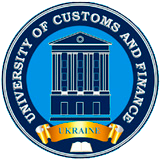CONSOLIDATED INFORMATION RESOURCE FOR EFFECTIVE MANAGEMENT OF MOTOR TRANSPORT ENTERPRISE
Abstract
Increasing the efficiency of motor transport enterprises is possible only for the introduction of the concept of digital transformation of the operator. The dominant problem of the formation of effective principles of management of such systems is the development of a methodology based on the principles of a single information space. In this case, we must take into account both technical and economic components. Digital technology and transport service system should be aimed at control all layers, in particular the quality of relations with each specific consumer of transport services.
In order to implement, it should form an analytical control mechanism. The analysis of modern approaches to informatization of business processes showed that most motor vehicles uses programs that belong to local transport management systems. They are designed for the needs of specific transport organizations, on their orders, and most aimed at automation and information provision of functional divisions. The proposed concept of an automated control system foresees much information service tasks in the context of strategic and tactical management, operational management, optimization of logistic business processes.
The basic tasks that arise when developing a consolidated information resource for information processing, taking into account a wide range of factors of influence. A set of ordered elements that are interconnected and have a set of integrative properties are offered. Considering it from functional positions, based on the focus on improving the efficiency of the enterprise, a set of solved tasks (planning, accounting, control, etc.) is determined.
Information technology that contains data collection, their processing and analysis, formation of reports is investigated. In detail, the indicators and components of the information system are considered.
References
Management of Permanent Change / Editors: Horst Albach, Heribert Meffert, Andreas Pinkwart, Ralf Reichwald. Springer Gabler, Wiesbaden, 2015. 240 p.
Knickrehm M., Berthon B., Daugherty P. Digital Disruption: The Growth Multiplier, Accenture. URL: https://www.accenture.com/_acnmedia/PDF-4/Accenture- Strategy-Digital-DisruptionGrowth-Multiplier.pdf
Ernst D. The evolution of a “digital economy”: research issues and policy challenges. URL: http://www.eastwestcenter.org/publications/evolution-digital-economy-research-issues-and-policy-challenges
Markovitch S., Willmott P. Accelerating the digitization of business processes. Mc Kinsey, 2014. URL: http://www.mckinsey.com/business-functions/digital-mckinsey/our-insights/accelerating-the-digitizationofbusiness-processes
Oglih V., Shapovalov A. Digital transformation in the transport industry: a test and new horizons for business. Monograph 42. Katowice: Publishing House of Katowice School of Technology. 2020. P. 286–292.
Silberschatz A., Korth H. F., Sudarshan S. Database system concepts. New York, USA: McGraw-Hill. 2011. 1349.
Bogusz V. M., Dovidkov O. A., Krivatsu V. G. Theoretical bases of protected information technologies. K. Ukraine: DUIKT. 2010. 454 s.
Azarov A. O.; Shiyan A. A., Nikiforova L. O. Develop a protected consolidated information resource analysis of the activities of maritime ports of Ukraine. ITKI 2020. 48.27–36.
Oglih V., Shapovalov A. Innovative development of the transport automobile system of Ukraine: problems and prospects. Monograph 28. Katowice: Katowice School of Technology, Poland. 2019. P. 193–200. URL: www.wst.com.pl

This work is licensed under a Creative Commons Attribution 4.0 International License.

 ISSN
ISSN 




